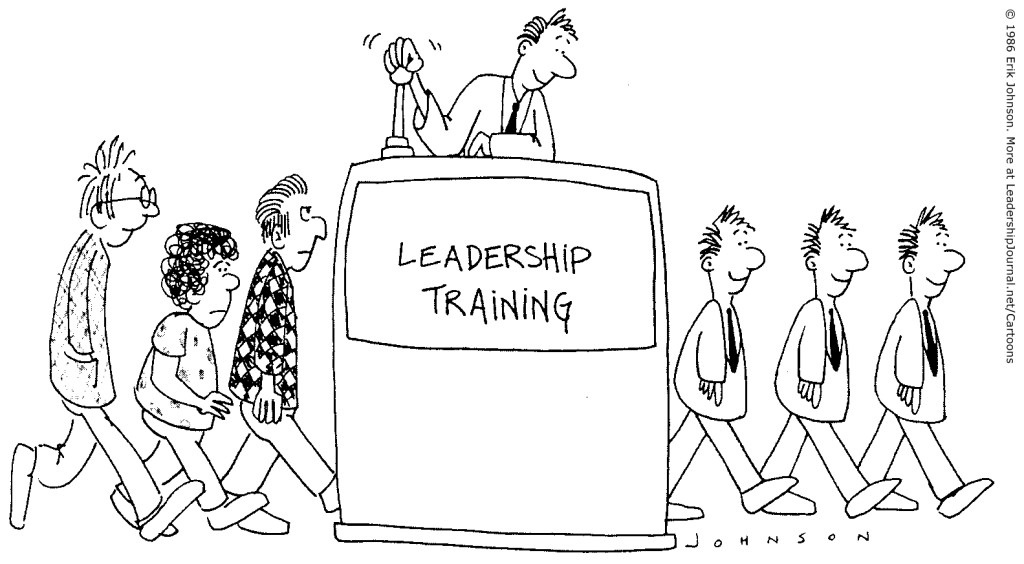Dear Brothers and Sisters in Christ:
 How do you feel about being evaluated or evaluating someone else? I imagine many of us are uncomfortable with both. Maybe we’ve had a painful evaluation at work or in the church. Perhaps a little humor will help—here are quotes from actual employee evaluations (the employees probably failed to see the humor!):
How do you feel about being evaluated or evaluating someone else? I imagine many of us are uncomfortable with both. Maybe we’ve had a painful evaluation at work or in the church. Perhaps a little humor will help—here are quotes from actual employee evaluations (the employees probably failed to see the humor!):
- Works well when under constant supervision and cornered like a rat in a trap.
- Slipped into the gene pool when the lifeguard wasn’t watching.
- She brings a lot of joy when she leaves the room.
- Some drink from the fountain of knowledge—he only gargled.
- If brains were taxed, he’d get a rebate.
- Gates are down; lights are flashing; but the train isn’t coming.
Though evaluations within the church might seem at odds with respecting and loving our brothers and sisters in Christ, it’s our responsibility as leaders to appropriately evaluate those we are called to lead. Why? Because through processes of discernment, which include evaluation, we respond to what the Spirit is doing in the lives of those we lead. We acknowledge how they have been gifted (and not gifted), and observe their level of maturity (the presence in their lives of the fruit of the Spirit and wisdom—see Galatians 5:22-25 and 1 Timothy 3:6). With this understanding, we then work to provide clear and accessible “pathways” into opportunities where they are enabled to use their gifts to share in Jesus’ mission, through the church, to the world.

A lack of evaluation has, at times, led to appointing people to the wrong ministry roles. It also has contributed to a lack of intentionality in developing new leaders. Perhaps worse, failure to evaluate has led to a lack of discerning the rich variety of the Spirit’s gifting, evidenced by “yellow-pencil,” assembly-line approaches to developing leaders.
By pointing out these deficits, I’m not suggesting that all we did in the past was of the “yellow-pencil,” cloning ourselves variety. I was blessed to work under leaders who recognized that my gifts and skills were quite different than theirs. One pastor saw that I was a better speaker than he was and gave me more preaching assignments than he gave himself. Another saw that I had more administrative talent than he did and helped me get more involved in that area. I recall him saying to me, “Nobody likes paperwork, but you know how to get it done!” I have fond memories of all the people who supervised me as a ministerial trainee, assistant pastor and associate pastor.
It delights me that we‘re now taking a more comprehensive approach to leader selection and development. In the U.S. we’re now using a comprehensive system that includes assessments to help employed pastor and church planter candidates confirm that their calling, gifting and experience is a good fit for their prospective ministry role. These assessments are conducted by leaders who have been appropriately trained.

I encourage our pastors to have in place within their congregations a process for identifying and developing new leaders (assistant pastors, ministry leaders, etc.). I know there often is pressure to recruit people to fill ministry slots, but it’s usually best to leave slots unfilled than to force-fit the proverbial “square peg into a round hole.” Developing leaders takes time and focused care that includes appropriate evaluation.
I recall that in one church I attended, a musically-challenged elder was appointed to lead the choir. It wasn’t a matter of not having gifted and qualified people to serve in that role, it was just a bad discernment-appointment process. The results were disastrous.
As one author put it, “What the Lord anoints, the church appoints.” I like that, because it reminds us that raising up new leaders is about spiritual discernment (Who has the Lord anointed, and how?), and about investing time and other resources to develop those individuals, leading to appointing them to roles within the church that are consistent with their divine calling. I’m grateful to see that many of our established leaders are investing time and other resources in this way. A wonderful example is our U.S. Intern Program directed by Jeff McSwain (you can read about that program at www.gci.org/internprogram).
As we follow the Holy Spirit’s lead in developing leaders, it’s important to remember that leadership within the church is not limited to a special, professional class. Christ’s ministry, including roles of leadership, is to be shared by all of his followers in accordance with the way the Spirit fosters in them both gifts and fruits. My deep thanks to all who serve, and special thanks to those called to lead who understand that a big part of that calling is to identify, equip, mentor and then release other leaders. That is the way of Jesus, and I’m delighted it’s becoming our way more and more.
It’s vital to the joy and health of each congregation that its members participate in mission with Jesus–most as ministry workers, some as ministry leaders. Every member and thus every congregation is like the vine to the branch, organically connected to and dependent upon Christ for its life (see John 15). As a living organism, the church’s concern should not be, “What do we want to do?” but rather, “What is Christ doing and how may we get involved?” The difference may seem subtle, but it’s critical.
I pray that we all work together to follow where Jesus leads, doing what Jesus does, and bringing with us others whom the Spirit is calling to active participation.
On mission with Jesus and with you,
Joseph Tkach
P.S. For some helpful resources on our website related to developing leaders, go to http://www.gci.org/content/competency-multiplying-leaders-ministries-and-churches.


